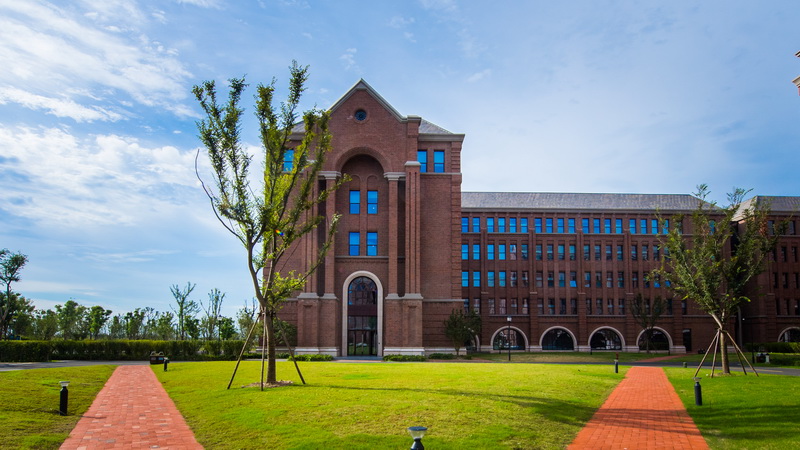Statistical Analysis
STAT 200

Course Code
STAT 200
Credit
3.0 - 3.0
Course Name
Statistical Analysis
Introduction
Survey of statistical concepts, data analysis, designed and observational studies and statistical models. Statistical computing using a statistical package such as R or a spreadsheet. Topics to be covered include data summary and visualization, study design, elementary probability, categorical data, comparative experiments, multiple linear regression, analysis of variance, statistical inferences and model diagnostics. May be taken as a first statistics course for quantitatively oriented students, or as a second course to follow a basic concepts course.
Statistics and Probability I
STAT 400

Course Code
STAT 400
Credit
4.0 - 4.0
Course Name
Statistics and Probability I
Introduction
Introduction to mathematical statistics that develops probability as needed; includes the calculus of probability, random variables, expectation, distribution functions, central limit theorem, point estimation, confidence intervals, and hypothesis testing. Offers a basic one-term introduction to statistics and also prepares students for STAT 410.
Same as MATH 463. 4 undergraduate hours. 4 graduate hours. Prerequisite: MATH 241 or equivalent.
Students must register for one discussion and one lecture section.
Technology and Society
SOC 350

Course Code
SOC 350
Credit
3.0 - 3.0
Course Name
Technology and Society
Introduction
<p>Examines the social and cultural origins of modern technology and technological innovation; the effects of technology and its change on society. Topics include the impact of technology on beliefs and values, accommodation and resistance to change, and technology and the Third World.</p>
<p>This course satisfies the General Education Criteria in Spring 2023 for:</p>
<p>Social & Beh Sci - Soc Sci</p>
The Chinese Language
EALC 130

Course Code
EALC 130
Credit
3.0 - 3.0
Course Name
The Chinese Language
Introduction
<p>An introduction to the scientific study of the Chinese language. We will explore where the Chinese language came from, its similarities to and differences from Japanese and Korean, and how the Chinese character writing system was invented, plus what is it like now. We will explore differences among Chinese dialects (e.g., Cantonese, Mandarin, Taiwanese and Shanghai) and learn where in China these are spoken, and also explore how the Chinese language operates in the brain.
The Culture of Disability
SPED 117

Course Code
SPED 117
Credit
3.0 - 3.0
Course Name
The Culture of Disability
Introduction
The purpose of this course is to provide an introduction to the culture of disability across the lifespan. The impact of disabilities on an individual across the lifespan will be explored, and the unique culture that is created by having a disability will be addressed. The historical basis for the disability movement and special education will be addressed, including legislation and litigation that has had a significant impact on the field. Students also will learn about the characteristics of individuals with diverse abilities as well as current trends in educational services.
The Digital Earth
GEOG 105

Course Code
GEOG 105
Credit
3.0 - 3.0
Course Name
The Digital Earth
Introduction
Geospatial technologies such as global positioning systems (GPS) and geographic information systems (GIS) are becoming increasingly important tools in research and policy arenas and in everyday life. This course will provide an introduction to these emerging technologies and to the principles of mapping science that underpin them. At the same time, the course will explore how these innovative technologies are changing the spaces and places around us, including how we interact with the environment and each other.
The Global Food Production Web
CPSC 116

Course Code
CPSC 116
Credit
3.0 - 3.0
Course Name
The Global Food Production Web
Introduction
Introduces students to the global web involved in the production of food we consume on a daily basis. Selected ecosystems of plants, people, and cultures in Asia, Africa, and Latin America will be studied based on involvement with various crops. Presents the origin and biology of plants; their evolution with humankind in various cultures; the spread and economic importance of crops around the world; and considers current hunger and environmental issues resulting from the global food web.
The World Food Economy
ACE 251

Course Code
ACE 251
Credit
3.0 - 3.0
Course Name
The World Food Economy
Introduction
Examination of global food production, consumption, and trade; problems of hunger and population; the role of agricultural development, trade, and aid in relieving hunger.
Prerequisite: ACE 100 or ECON 102 or consent of instructor.
This course satisfies the General Education Criteria for:
Cultural Studies - Non-West
Social & Beh Sci - Soc Sci
Thermodynamics
ME 200

Course Code
ME 200
Credit
3.0 - 3.0
Course Name
Thermodynamics
Introduction
<p>Classical thermodynamics through the second law; system and control-volume analyses of thermodynamic processes; irreversibility and availability; relations for ideal gas mixtures. Prerequisite: MATH 241.</p>
Traditional China
EALC 220

Course Code
EALC 220
Credit
3.0 - 3.0
Course Name
Traditional China
Introduction
<p>Historical background to the modern age, tracing the Chinese state and empire from the earliest times until 1644 A.D. Basic political, social, and economic patterns; cultural, intellectual, and technological achievements; and China's impact on Asia and the world. Same as EALC 220. This course satisfies the General Education Criteria for: Cultural Studies - Non-West Humanities – Hist & Phil</p>





